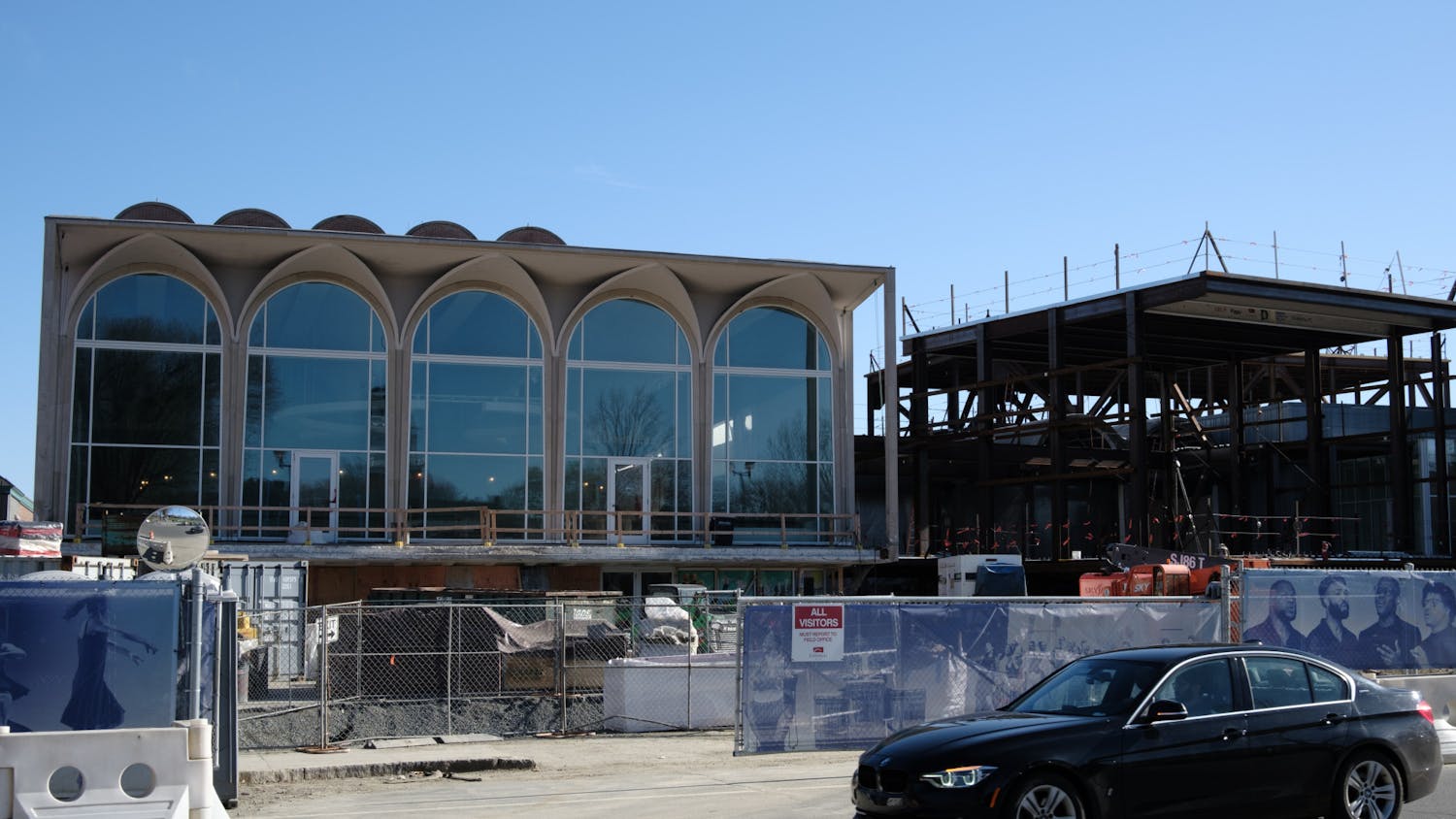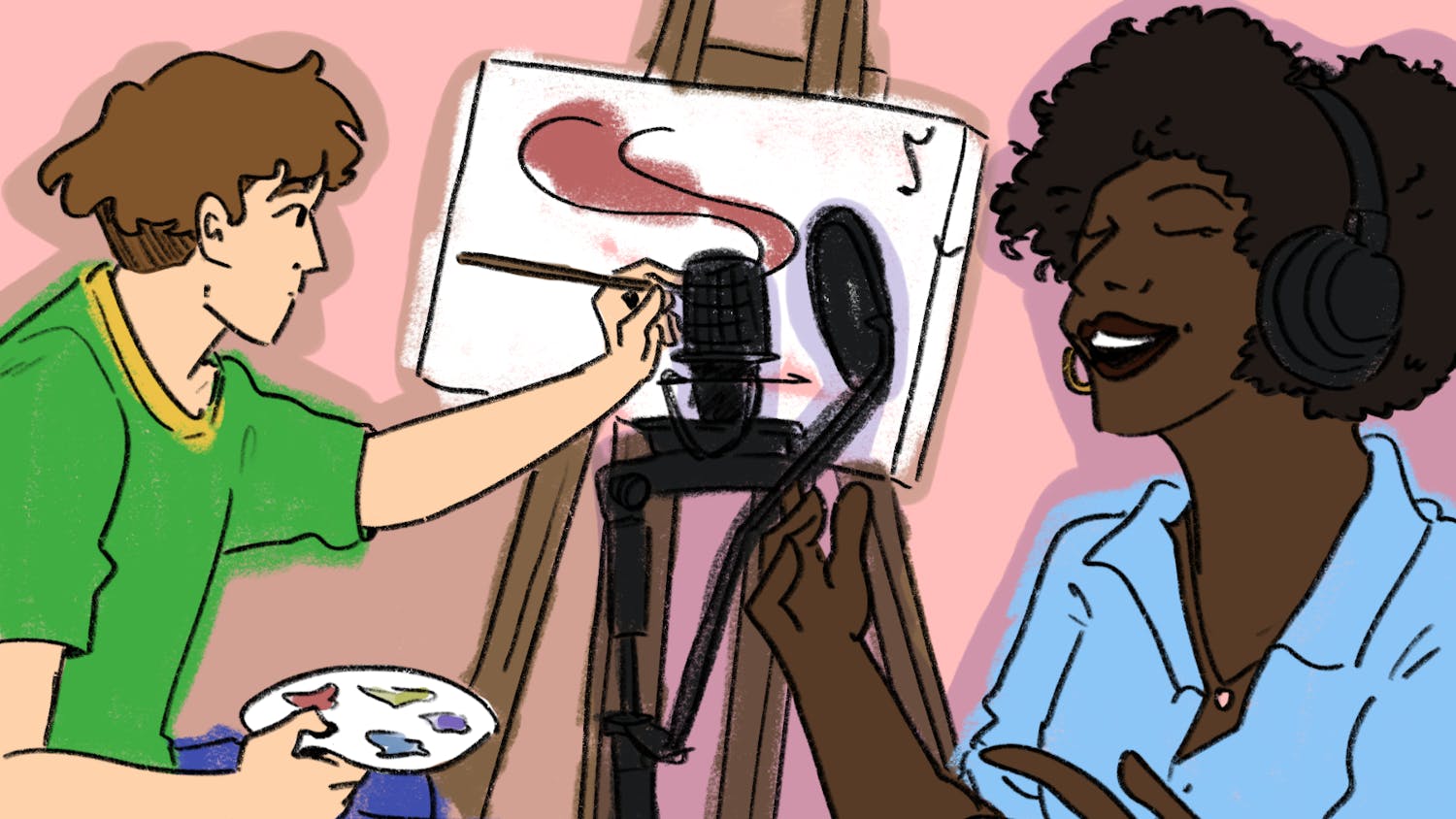This Thursday night at the Hopkins Center for the Arts, audiences can see a different and intimate performance of one of the most formal art forms possible: opera.
“Dartmouth Opera Lab Celebrates Bernstein” is the first event of both the Thursday Night Live series hosted by the Hop and Dartmouth Opera Lab. The event, which will take place at the top of the Hop, is part of a series of performances that celebrate composer Leonard Bernstein’s centennial birthday. The top of the Hop will be transformed to evoke a cabaret and will feature performances of internationally renowned opera stars Daniel Belcher and Amy Owens. They will sing alongside members of the Glee Club in addition to the Hanover High Footnotes. The performance will be a strictly informal and free event where students will be an integral part of the performances.
As part of the Thursday Night Live series, the performance is also part of a series of arts-centric events that will occur at the Hop every other Thursday. Dartmouth Symphony Orchestra director Filippo Ciabatti said that these events will serve as a point of reference for students on campus and for people in the community to have a drink and enjoy some music in an informal environment. While opera as an art form is usually seen as a formal, black-tie event, the performance on Thursday emphasizes the music rather than the ritual.
“When you think of opera, you think of getting dressed up [in] uncomfortable clothing, going to a place, sitting with people who are richer and very much older than you and sitting through three hours of stuff sung in another language,” said Peter Webster, the opera director and producer.
Webster and Ciabatti said they sought to “bring opera to younger generations” and have them be immersed in the art itself.
“Everybody likes stories, and everybody likes music,” Ciabatti said.
The performance will mark the creation of Dartmouth Opera Lab, which will integrate Dartmouth students to sing alongside renowned performers while developing their own artistic talents. Webster highlighted the innovation of the program, explaining that unlike a music conservatory where interactions are more formal, it will be a laboratory where people can explore and experiment.
Given the collaborative nature of the project, students from Dartmouth have been an integral part of this event since day one, Webster said. Following the vocal and artistic tradition on campus, Webster emphasized that there is a “sense of inclusion” that can make opera events more attractive to younger audiences. The process of choosing the students who would participate in this Opera Lab was done in collaboration with the music department. Professors recommended some of their students, who would then audition to participate.
Belcher, a former professor at Florida State University and a baritone opera singer, said he loved to teach and that he actively seeks out students from nearby communities where he performs so that they can create their own “opera lab.” In this sense, Dartmouth has also been able to integrate professional performers with pupils at different stages of their educational career.
Soprano singer Owens said she enjoyed working with student Aaron Samuels ’20 and that she was eager to continue practicing and performing with more of his peers.
Hanover High Footnotes, a musical group from Hanover High School, will also be participating in this event, demonstrating greater engagement between the Dartmouth campus community with the larger community of Hanover. Jennifer Chambers, the choral director of the Hanover High Footnotes, said Webster had been in contact with her since this past summer for an opportunity where her group could participate. Even though they had been invited to other events, this was the most convenient production for both schedules and, as Chambers said, her students were “honored to be invited to come participate.”
Although the Footnotes have had some prior singing experience in “cathedral settings” and professional orchestras, this will be, for some students, their first experience with professional artists.
While also being the first event to open both Thursday Night Live and the Dartmouth Opera, the performance centers around Bernstein’s music, which offers an opportunity for the audience to be able to experience both the art of the opera world and more modern songs from famous musicals such as “West Side Story” and “Candide.”
Owens said, “[Bernstein] is the most inspiring 20th century musician out there,” and he explored “different musical styles because he was interested in them.”
Owens also said that Bernstein was an artist she related to, given that she is innately curious of anything that interests her musically, even when the different genres might seem intimidating.
Concurrently, Belcher described Bernstein’s music as “very intricate,” while Ciabatti defined his work as being “multifaceted music” with a profound depth that could be presented to different kinds of audiences, given its modernity.
One of the features in the Dartmouth Opera Lab initiative that was heavily emphasized was the intimate and informal settings for their events.
“You can really connect with people, you can look at them, even touch them,” Owens said. “I think audiences are a big part of performance. It is so much fun, and opera is meant to be done acoustically, so there are more choral options available to you as a vocalist [in a smaller setting].”
Owens also said that the informal setting allowed the performance to be completely connected to the audience and allowed her to be more improvisatory.
Belcher said that when there is a more intimate audience, there is a “visceral experience of the sound.”
“[Spectators] will understand every word ... see every physical nuance, every gesture,” he said. “The immediacy will only be heightened by the experience at the Top of the Hop.”
Ciabatti said that Bernstein’s repertoire also allows for an intimate and informal setting, where the performers can be, to a greater extent, in touch with their performance and become more vibrant. The setting of the Top of the Hop made it easier to transform the more formal aspects of opera into an intimate production.
“The core concepts that lie underneath [opera] will speak regardless of the setting,” he said.
“Dartmouth Opera Lab Celebrates Bernstein” takes place at the Top of the Hop on Thursday night at 9 p.m.




